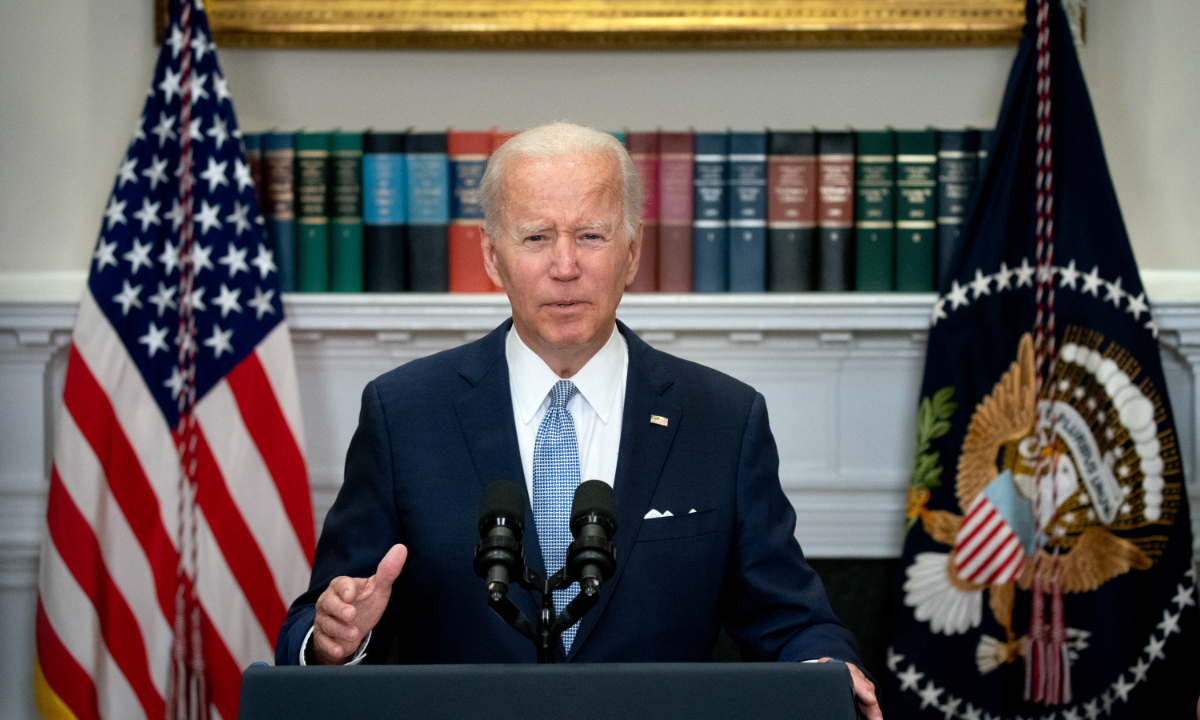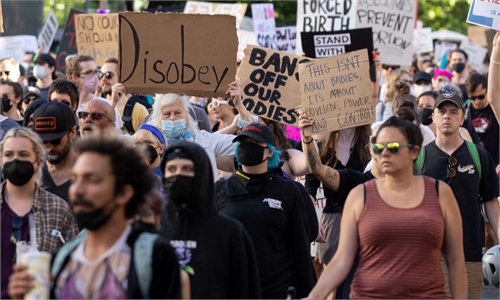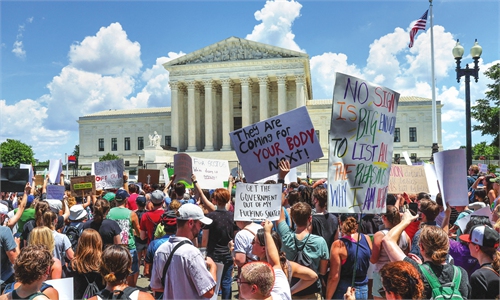Texas challenges Biden administration's border policy
Migrant case at Supreme Court

US President Joe Biden on June 25, 2022, signs into law the first major gun safety legislation passed by Congress in nearly three decades, days after the Supreme Court struck down a NY law restricting concealed carry. Photo:AFP
The US Supreme Court heard arguments on Tuesday in a case brought by border state Texas challenging the federal government's right to decide which undocumented migrants should be targeted for deportation.
Defending the Biden's administration's policy, Solicitor General Elizabeth Prelogar said the federal government has to prioritize its efforts because it does not have the resources to pursue the 11 million undocumented "noncitizens" in the country.
"This is not about reducing enforcement of the immigration laws, it's about prioritizing limited resources to say go after Person A instead of Person B," Prelogar said.
After more than two hours of arguments, the nine justices on the conservative-majority court did not appear to fall clearly on one side or the other of the case, which also raises thorny questions of the legality of state challenges.
"It means that states can challenge the federal government on any policy with which they disagree," Prelogar said. "Federal courts should not be transformed into open forums for each and every policy dispute between the states and the national government."
Texas filed suit after the Department of Homeland Security, in a September 2021 memo, instructed US Immigration and Customs Enforcement (ICE) to concentrate expulsion efforts on persons who "pose a threat to national security, public safety, and border security."
"We do not have the resources to apprehend and seek the removal of every one of these noncitizens," Homeland Security Secretary Alejandro Mayorkas said. "Therefore, we need to exercise our discretion and determine whom to prioritize for immigration enforcement action."
Texas solicitor general Judd Stone said prioritizing expulsion of undocumented migrants to certain categories of persons would impose costs on the state, which shares a border with Mexico and is an entry point for hundreds of thousands of immigrants every year.
Elena Kagan, one of the three liberal justices on the court, appeared skeptical about the costs argument and the potential danger of limiting federal authority.
"Immigration policy is supposed to be the zenith of federal power," Kagan said. "And instead, we're creating a system where a combination of states and courts can bring immigration policy to a dead halt."
AFP



